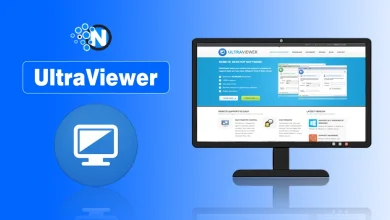
Maybe everyone raves about your fudgy brownies. Or you think a Turkish style hammam spa would be a hit in your town. You may feel like you’re sitting on top of a million-dollar idea. That might be true at times, but not every idea is a viable business. There are several things you need to consider before you can distinguish between a fun hobby and a successful business.

<mark style="background-color:rgba(0, 0, 0, 0);color:#0061fb" class="has-inline-color">1. Create a Business Plan</mark>
Creating a business plan stands first either you are starting a business or turning your idea into a business plan.
i. Evaluate Your Idea
First things first, put your ideas and numbers down on paper or online to evaluate the potential of your idea. Conduct a SWOT (strengths, weaknesses, opportunities, and threats) analysis to see where your business can shine and where it needs to be cautious.
You can find samples for a business plan template online that are easy to fill out and understand. This helps streamline and refine your idea. It might also help unravel some risks you may not have considered. Such a plan can also give you a checklist of next steps.
ii. Business Plan as a Tool for Funding
Not only is having a business plan great for your decision making, but it can also help you secure more funding. Banks and investors want to see the bottom line and projections for your idea. Anecdotal data is not always enough for them to invest money in your business.
The business plan can be brief or very detailed, but having it all laid out in front of you can make it easier to get others on board. A business plan shows that you are serious, and this endeavor is not just a side gig you are starting on a whim.
<mark style="background-color:rgba(0, 0, 0, 0);color:#0061fb" class="has-inline-color">2. Conduct Market Research</mark>
Market research strongly builds the foundation of your idea. It will make it easier to decide which specialty will have more success and effectiveness.
i. Don’t Rely on Friends’ Opinions
Your friends may tell you your earrings upcycled from old glass bottles are the best they have ever seen. However, as your friends, they can also be biased. They may just want to support your dreams. A successful business cannot rely on just friends and family. You can get honest feedback by hiring someone to conduct market research for you.
ii. Using Focus Groups and Surveys
Research companies can host focus groups for more detailed qualitative feedback. Or they could conduct quicker surveys with larger data sets for quantitative feedback. Strangers can give their honest opinions because they don’t have to worry about hurting your feelings. If you cannot hire a market research company, you can still get some unbiased responses.
iii. Creative Ways to Get Honest Feedback
Say you want to start a charcuterie board business. Make some awesome boards and have your friends over. Tell them you had it catered from a local business and see what they say. Should there have been more meat and less cheese? Could the fruits have been fresher?
They should tell you honestly if the crackers were soggy or if the salami rose was on point, if they think it came from someone else.
<mark style="background-color:rgba(0, 0, 0, 0);color:#0061fb" class="has-inline-color">3. Don’t Forget the Legalities</mark>
Once you’re ready to take the plunge, ensure you have the paperwork. Read below about what are more important to check.
i. Choose the Right Business Structure
Decide if you want to register as a sole proprietorship, partnership, or limited liability company. Each has its pros and cons. Find out what business license and other things you may need to start. Consider entity management solutions to ensure compliance with regulations and streamline operations.
If you’re investing in a brick-and-mortar location, make sure all construction is done to code with licensed contractors. Don’t try to cut corners and have your Uncle Joe install the lights for free. If you are serving food, make sure the kitchen and other areas pass a safety inspection with no issues.
ii. Set Up Organized Financial Systems
Numbers overwhelm many people, but that isn’t an excuse to have sloppy bookkeeping. Start off in an organized manner with an online accounting software or hire an accountant. If you reconcile receipts regularly, it doesn’t snowball into a huge mess come tax time or if you need to apply for a loan.
Having a good financial system in place also allows you to get a snapshot of how your business is faring at any point in time. You can see your bestsellers and order more inventory. You can identify months with low sales and run some promotions at that time.
<mark style="background-color:rgba(0, 0, 0, 0);color:#0061fb" class="has-inline-color">4. Start Off Small</mark>
Try to launch your business with low overhead. If possible, become a vendor at local craft fairs or carnivals to test your product or service. This way you’re only paying for a booth for a day or so.
i. Test Your Product with Low Overhead
See how it goes by vending in different locations and times of the year. It is a lot of work to set up and tear down at bazaars. However, it’s still cheaper than paying rent for a year and having low foot traffic at a store. When you sell out at nearly every booth and people ask for your business card, then you know it might be worth taking the plunge for a more permanent location.
ii. Avoid Scaling Too Quickly
Don’t open the largest location your savings or business loan allows. Start off on a smaller scale so you need less inventory and staff. After a year or so, open another branch in a different part of town. Sometimes, entrepreneurs get very excited and dive into the deep end.
That may work for a few. For everyone else, slow and steady is a safer bet. This strategy allows you to tweak your product line as you grow. You learn from your mistakes before you make it big.
iii. Start with Flexible Staffing
You can also keep payroll overhead low by starting off with some part time staff or hiring people on a contract basis. This gives you the opportunity to evaluate their work, and they can see if they like working for you too. You can hire people for a few hours a day or week.
They can help with social media, copywriting, fulfilling orders, and even accounting. As your business grows, you can skip the recruiting process by offering the contractors a permanent job.
<mark style="background-color:rgba(0, 0, 0, 0);color:#0061fb" class="has-inline-color">Conclusion – Take the Leap</mark>
Pretty much everyone has great ideas at some point. However, not everyone has the opportunity or ability to turn that lightbulb moment into an income. For some it could go south and be a bust. For others it could be a good, but short-lived experience. Maybe, it could even translate into generational wealth. Taking your idea and running with it is the only way you’ll know the outcome.




